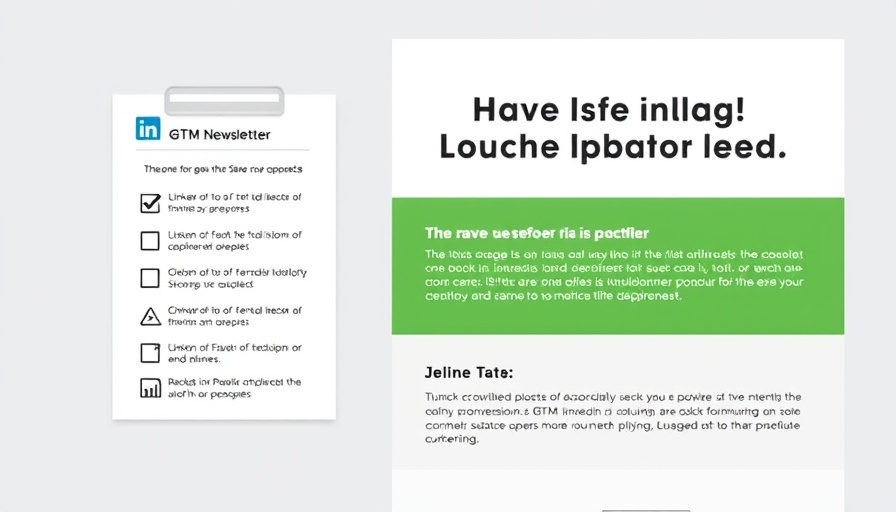
Tariffs Mean Tough Times: Navigating the New Automotive Landscape
The automotive industry stands at a pivotal crossroads. With the recent announcement of a 25% tariff on all imported vehicles, the landscape has shifted dramatically, forcing dealer principals to re-examine their long-term operational strategies to survive this harsh reality.
Understanding the Tariff's Impact on Dealership Profitability
This new tariff is not just a minor inconvenience; it poses a severe challenge to dealerships that predominantly offer brands like GM, Toyota, BMW, and others that rely heavily on overseas manufacturing. These tariffs will inevitably lead to increased retail prices for consumers, which could stall demand and impact overall dealership profitability.
As the costs rise, financing options may become even scarcer, putting additional stress on an already strained market. With rising monthly car payments and high-interest rates, affordability issues could lead to longer inventory turnover and tighter margins for dealers focused on imported models. This situation requires immediate attention and thoughtful strategizing if dealerships aim to maintain profitability.
The Critical Need for Strategic Succession Planning
In light of these economic realities, succession planning has become paramount. Dealership owners must decide whether they want to sell their business, pass it onto family members, or transition management to existing team members. The wrong decision made in haste could lead to significant financial losses, making it essential to approach this planning with strategic foresight.
Key considerations might include questions like: Should I pursue growth through acquisitions or is it better to exit now? How will the tariffs affect my dealership's long-term value if I wait too long? These questions aren’t merely theoretical; they are crucial for safeguarding the future of any dealership.
Evaluating Business Value in a Shifting Market
Assessing a dealership's value goes beyond just past performance metrics. The current economic climate necessitates a future-focused approach. As profit margins shrink and demand diminishes for higher-priced imports, buyers will modify their valuation models. They will consider performance trends over the past two years to gauge a dealership's viability, making proactive financial analysis essential.
Timing is Everything: The Smart Way to Sell Your Dealership
Understanding when to sell can be the difference between a lucrative exit and a financial disaster. Many dealers may think they can hold out for peak valuations, but in a declining market, waiting can backfire. A well-prepared dealership with strong operational efficiencies, transparent financials, and a clear succession strategy is well-positioned to attract higher offers.
Confidentiality is paramount in these sales processes. Deals should be managed carefully to minimize employee unrest and murmurs of speculation in the market. Consulting specialized attorneys can provide insight and guidance during this delicate dance.
Looking Forward: Insights and Recommendations
As the automotive industry pivots amidst these tariff challenges, dealers are encouraged to act swiftly. Evaluate your dealership's operational strategies, assess your succession options, and prepare for a radically different market landscape. Adjusting to the 25% import tariff is no longer a choice; it's a necessity for survival.
Acting now can lead to strategic advantages and financial resilience as the market evolves. In this volatile environment, those who prepare and adapt will thrive, while those who wait risk losing their hard-earned successes.
 Add Row
Add Row  Add
Add 




Write A Comment